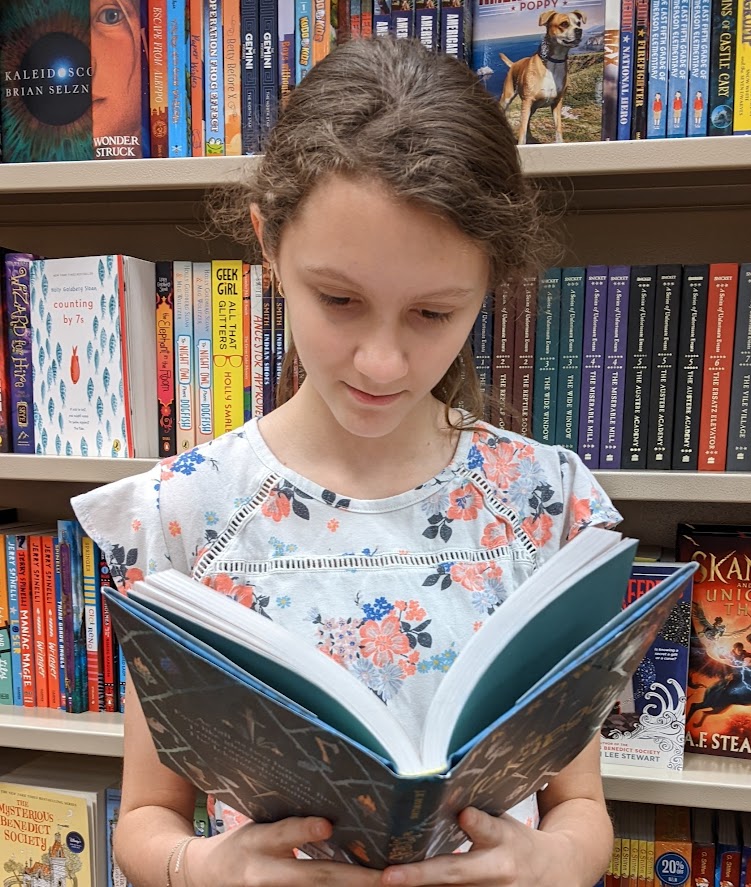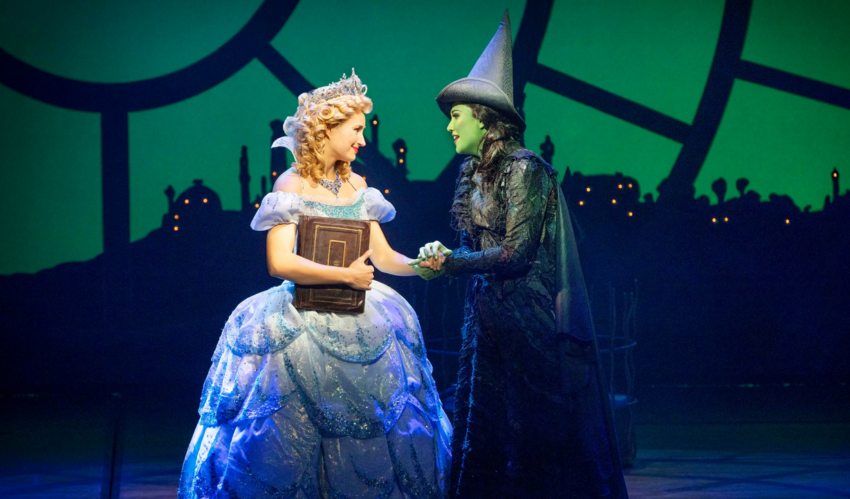In a previous article, I’ve mentioned how villains should not be shoved under a morally right light. How the writer shouldn’t try to make the bad guy, who everyone is supposed to hate, some misunderstood hero. But what should you do if you want to write a book about the villain’s backstory? When your villain is the main character and therefore the reader has to love them because they’re driving the story?
It has become a modern trend to write such villain backstories. And though most of the ones I’ve read and watched have turned out to have cheesy and pathetic protagonists, one character executed this troupe remarkably well: Elphaba from Wicked, one of my favorite musicals of all time.
Wicked
As of 2024, Wicked is the fourth-longest running broadway show in all of history, even though the protagonist is a villain. It follows the backstory of the Wicked Witch of The West from The Wizard of Oz. This musical explains everything about how the setting of Oz came to be, from the Witch’s green skin to the talking lion, and serves as an intriguing prequel to the timeless classic.
It begins with a young woman named Elphaba, a teenage girl who is moving into a new boarding school…and also happens to have bright green skin. She instantly sparks a rivalry with Galina, the most popular girl in the school. As they begin to argue, Elphaba reveals she has mysterious powers. One of the teachers sees this and happily informs Elphaba that if she could learn to use those powers for good, she could be trained by the Wizard of Oz himself.
This is when we start to see Elphaba’s internal desire. After the teacher leaves, Elphaba sings The Wizard and I in which she tells the audience how all she’s ever wanted is for someone to look past her green skin and see her for who she is on the inside. She daydreams about how the Wizard will cause the whole world to look past her skin and see who she really is.
But, as the old proverb goes: “Never meet your heroes.” When Elphaba finally gets to meet the Wizard, she finds out that he’s just a hoax who’s only power is manipulating others. He doesn’t see past Elphaba’s strangeness, but instead, only views her as a magical weapon he can use to keep his country in line. He tries convincing her into working for him, but Elphaba, hurt and betrayed, refuses and runs away. And now that she knows the Wizard’s secret, Elphaba is forced to become a fugitive. In Defying Gravity, Elphaba decides to keep her chin up and fight for what is good even if it means continuing to be an outcast, as she has been her whole life.
So far, so good right? Despite her minor weak point, her deep desire to be truly loved, Elphaba marched on and did what was right, even if that meant sacrificing her dreams. From a writer’s standpoint she’s a solid, likable, protagonist who’s filling her role well.
However, as the second half of the musical starts, you begin to see how Elphaba turns from this loveable hero to the infamous Wicked Witch. In the midst of her plans to take down the Wizard, Elphaba gets news that the man she fell in love with (Fiyero), was tricked into marrying Glinda, her old highschool rival. Earlier in the musical, Glinda also had a chance to stand up for good, but chose popularity instead, leaving Elphaba to battle the Wizard on her own.
Fiyero is Elphaba’s tipping point. He was the one person in her school who truly saw her for who she was, the only guy who ever fulfilled her greatest desire, and now he was being married off to her enemy. So, in a wild act of rage, Elphaba swoops in and steals her lover away from Glinda. Fiyero and Elphaba confess their love for each other in the song As Long As You’re Mine, at the end of which Elphaba says the famous line: “For the first time, I feel…Wicked!”
Sadly, their relationship is short lived. The military quickly tracks Elphaba down, and in a wild fight, they end up tearing Fiyero away from her and beating him to death offstage. Elphaba tries to cast a spell to save him, and as she does, she sings No Good Deed, the song that cements her turn to villainhood. (If you’re going to listen to any of the songs, listen to this one!)
Understandable, but Not Sympathetic
Throughout all of this, you understand Elphaba. You understand the circumstances and decisions that have led her to this life-changing moment. However, understanding is different from loving and sympathizing. Though you may sympathize with Elphaba in the first half, you’re not supposed to by the time she decisively renounces good forever, and that’s what sets her apart from an average protagonist. With a normal character, you want the reader to love them for the entire duration of the story, but this is not the case with a villain. For a negative character arc, you want to grab the reader’s attention with a loveable protagonist at the beginning, and then leave the reader in horror as that character makes their descent into pure evil. Below are three key ways to make sure this is done well in your story:
1. Give Your Villain Goals, Fears, Desires, Just Like Any Other Character
This one is pretty self-explanatory. Give your antagonist hopes and dreams but also fears and things to dread. Give them quirks, personality, and hobbies just like any other character should have. In The Wizard of Oz, the Wicked Witch is just pure evil, a classic example of a villain with no depth or impact, someone who’s ultimately destined to be killed off by the end of the film. In the Wicked, however, the Witch is given a clear internal conflict and a bold personality, making her ultimately more terrifying by the end. Set your characters up to be normal, so it will ultimately surprise your reader all the more when they turn out to be something completely different.
2. Pre-set Flaws Make All the Difference
Infect your villain protagonist with flaws, or a fatal misbelief, early on. Again, normal characters should have this too, but the villain’s flaws will be what ultimately destroys them. Apart from Wicked, one of the best examples of this is Coriolanus Snow from The Ballad of Songbirds and Snakes (The book, NOT the movie. Article on that coming soon.) In the first few pages of this Hunger Games prequel, Coriolanus stresses and rambles on about a missing shirt for pages at a time. His obsessive nature and desire to control every little detail of his life is shown right away, and the reader is able to see how those flaws will be twisted into the murderous President of the Hunger Games trilogy.
3. Tragic Circumstances
Give your soon-to-be villain tragic circumstances that intensifies their flaws. These circumstances are ultimately what make your story’s plot, but be careful! It’s easy to accidentally frame your character as sympathetic if you pile on the tragedy too much. In Disney’s Cruella or Maleficent they add so much sadness and trauma to the main character’s backstory, that it feels like their saying: “See! They can’t help being pure evil because X, Y, and Z happened to them! It’s okay that they murdered thousands people, or abused countless animals, because they just had a hard life!”
It’s an excuse so many villain stories use, that it’s become a cliche at this point. Many heroes have had hard things happen to them, yet they don’t choose to try and rule the world, right?
4. Have a Tipping Point To Draw a Clear Line
The only thing that sets these heroes apart from the villains, is that the former chooses to overcome their flaws and ultimately do what is right, whereas the latter lets their flaws overcome them. Elphaba succumbed to her (ultimately destructive) desire to be truly loved by stealing Fiyero from Glinda. And though you could argue the point that getting what she wants doesn’t entirely make her a villain, she certainly has her tipping point in No Good Deed, after losing the one person who really understood her. She gets fed up with having to be good all the time, always having to be the right one even when everyone’s calling her wrong. So she declares that, since rejection and ridicule is the only prize she’s ever gotten for trying to be a good person, she is now: “Wicked through and through.”
So, to make sure your character “wicked through and through,” give them a clear tipping point in which they pass into pure evil and renounce goodness forever. Work in flaws and circumstances beforehand that make this ultimate decision more understandable. And don’t forget that, while your villain protagonist can be a fairly average character at the beginning, they shouldn’t stay that way by the end. With these tips in your arsenal, go out there and write a good villain backstory! Draw the clear line between good and evil, defy cliches, and set this troupe right once and for all.



Let us know in the comments section: What villain backstories have you read that were done well? What made their protagonists understandable, yet not relatable? And how was this article? Too sour? Too sweet? Just right?


Hello, I’m Sophia! I’m a child of God and I (if you couldn’t tell already) love to write! I’m also a total theater kid and strong dessert (specifically cupcake) enthusiast. For as long as I can remember, I’ve enjoyed both reading and making my own stories. I’m so glad I get to share with you what I’ve learned from some of my favorite (or sometimes least favorite) stories on this blog.


i love this i went to see the play a few moths ago and don’t get mad but be for that i hade no clue about what it was
haha, I’m not mad at you! I totally get that; it’s quite a confusing plot! I’m glad you liked the article though!
Hi there, loved your article. I think you explained the concept of a villain protagonist really well. As an aspiring writer , I found it quite refreshing to see your take on it. As for a villain backstory that I found to be well done was Victor Frankenstein from Mary Shelley’s Frankenstein. Especially because Victor is kinda unique in not hurting anyone directly, other than maybe his own creation.
Hello there, Beni! Aww thank you so much! (: Ah yes I’ve read Frankenstein! Shelly’s original story is way creepier (and more cleverly written!) than the stereotypical zombie most people associate with the word ‘Frankenstein’. I didn’t think of Victor as a villain protagonist before, but now that you said that, it totally makes sense! Thank you for kind comment!